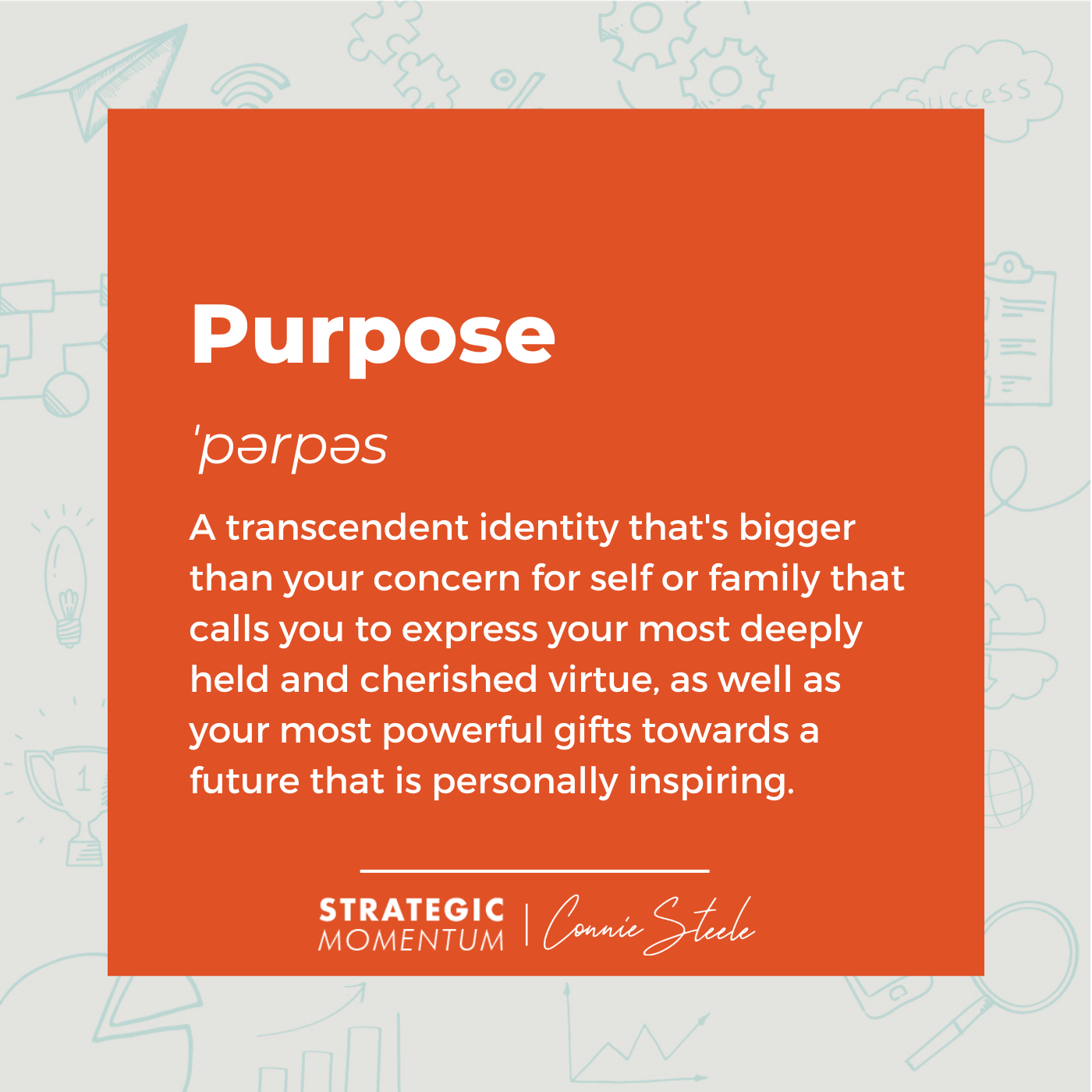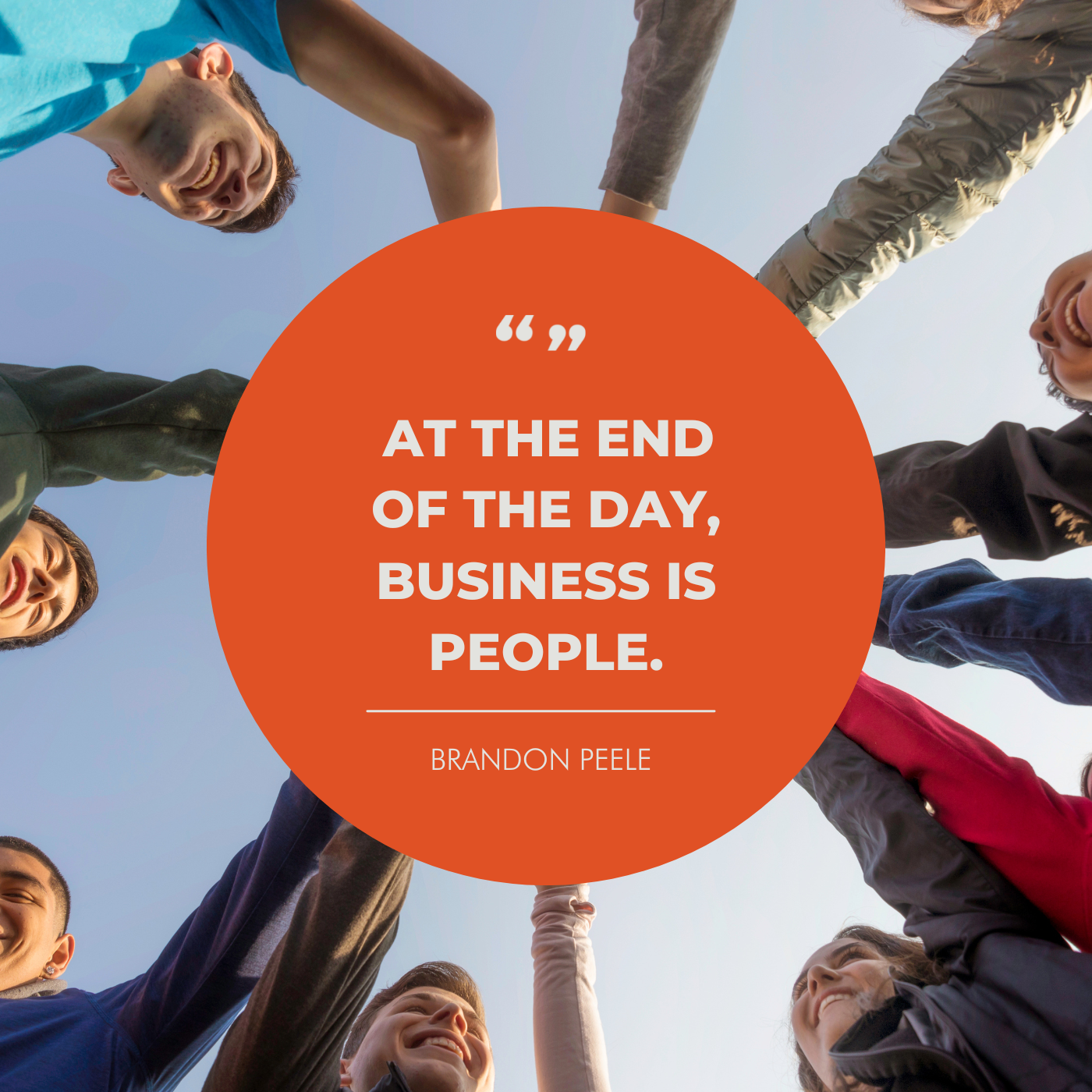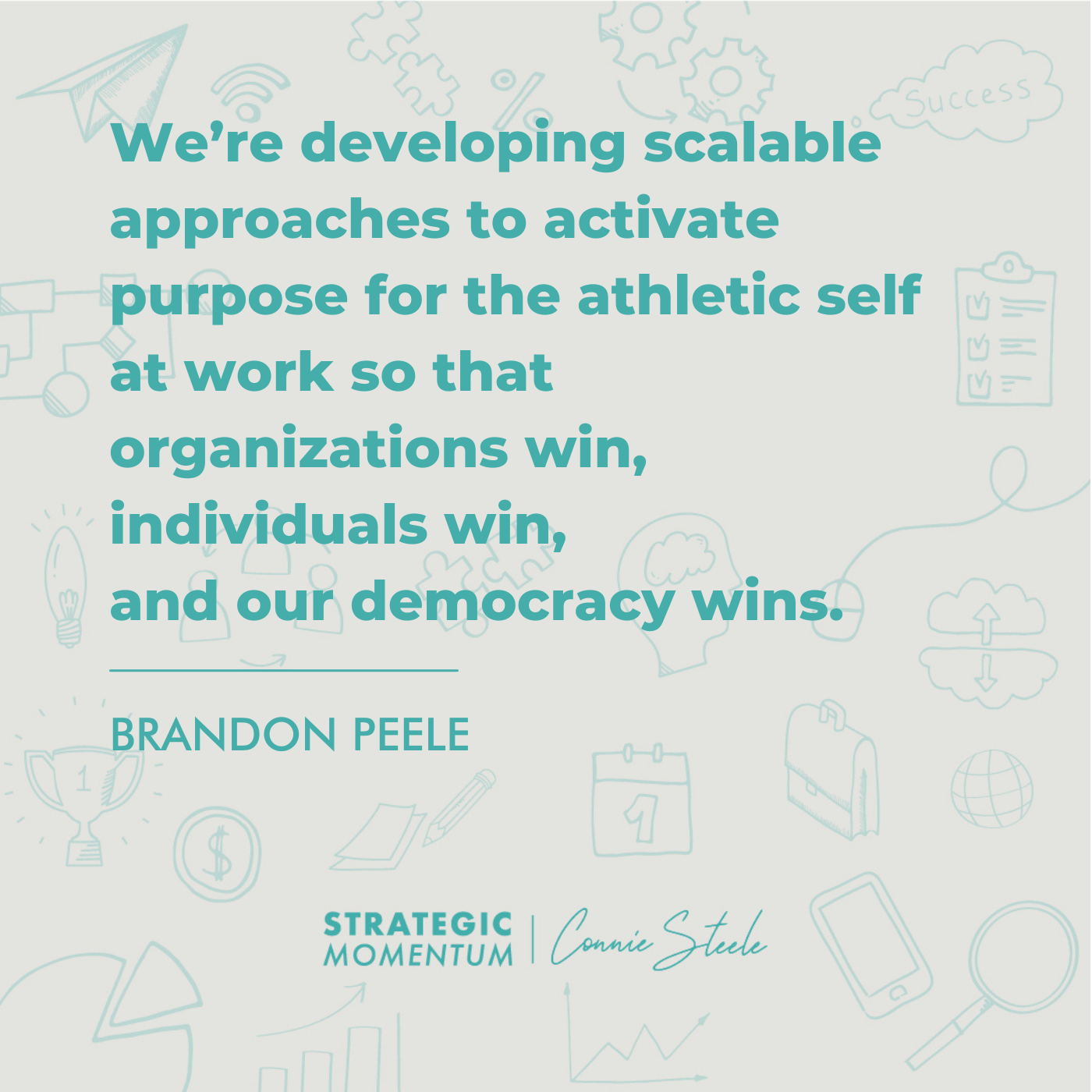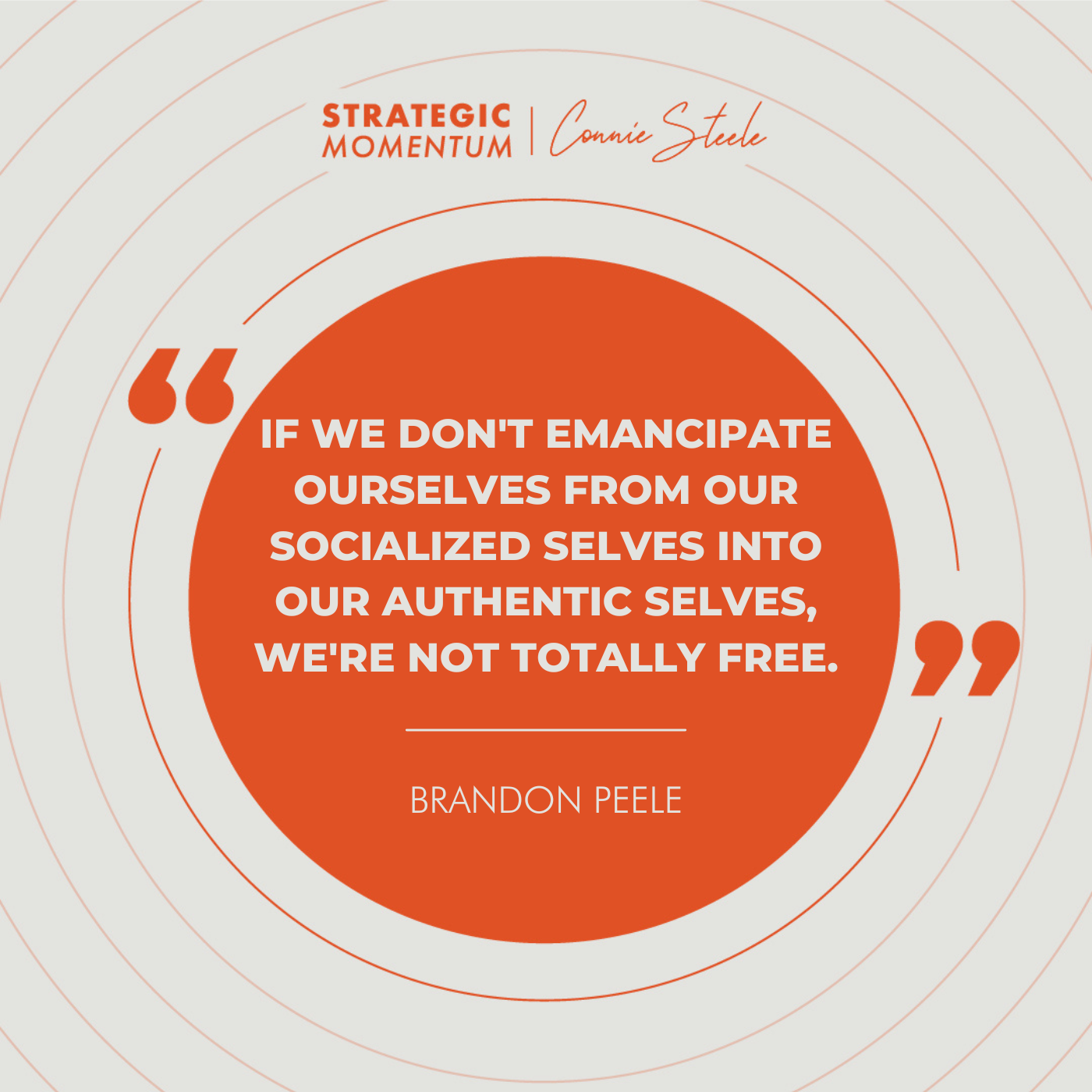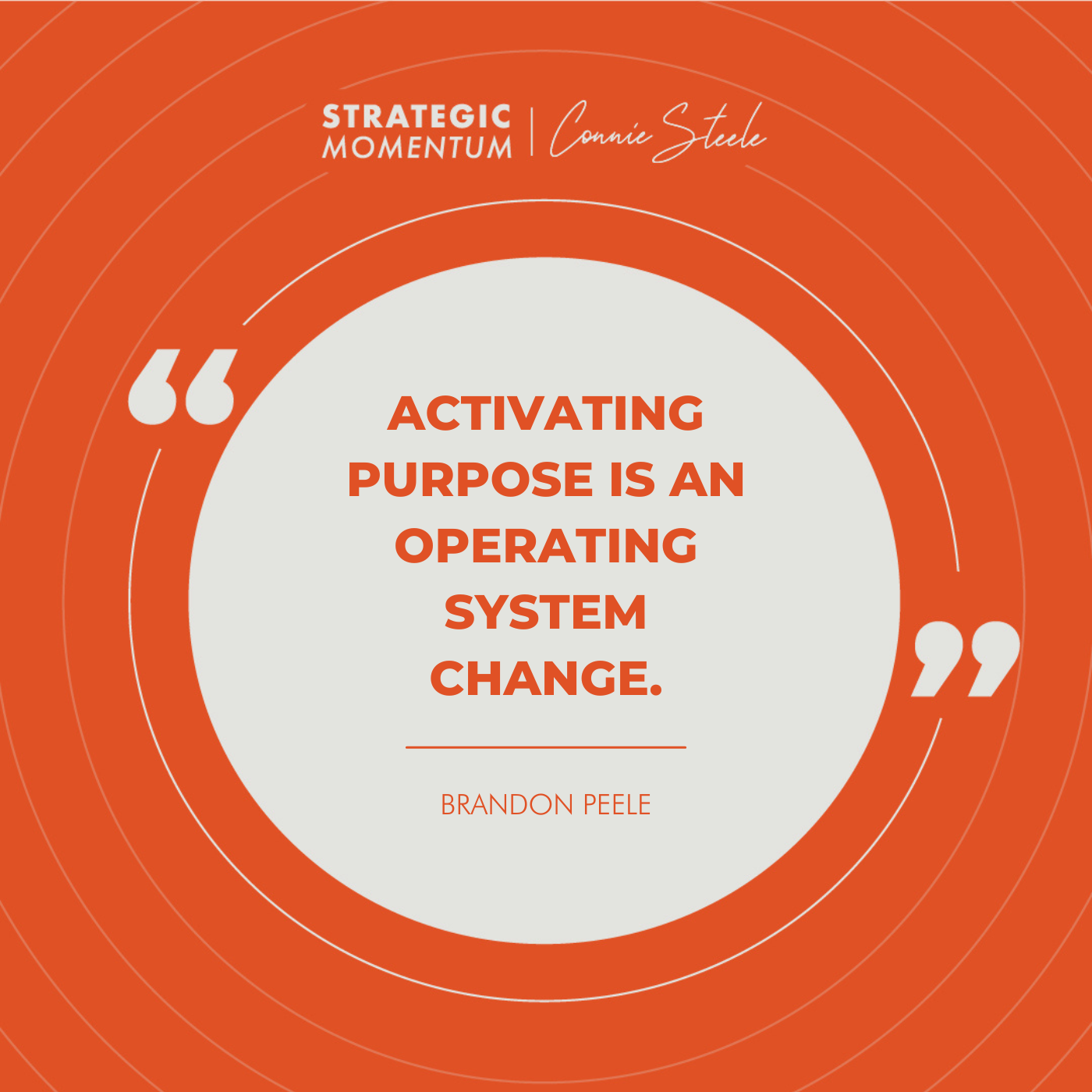Ep. 127 - The Power of Purpose: Society & the Bottom Line - with Brandon Peele
Find Us Wherever You Listen To Podcasts
For the last 10 years, Brandon Peele, founder of Unity Labs and author of “Purpose Work Nation,” has been developing scalable approaches to activate purpose for the authentic self at work so that organizations win, individuals win, and our democracy wins.
Brandon sees discovering your purpose as a Civil Right that everyone deserves — and now he’s endeavoring to change the very institutions that shape society to better nurture everyone in this journey, beginning by shaping the organizations we spend most of our time within.
From Purposeless to Purposeful
Brandon hasn’t always had a sense of purpose to guide him. He spent the first 30 or so years of his life floundering, the way I think a lot of us do, just trying to follow society’s blueprint and figure things out through trial and error.
“You go to college, you get good grades, you get a job in professional services, you take your girlfriend, you move her out to the suburbs, you make some more humans, and you die on a golf course. That's what you do.”
Then Brandon found Purpose Work, which he describes as a personal descent into your authentic self adjacent to therapy, coaching, or spiritual work. And going through this process was transformational for him.
Since then, he has been writing books, delivering keynotes and programs, and working with organizational leaders to develop scalable approaches to activate purpose.
What is Purpose & How Do We Achieve It?
Brandon defines purpose as “a transcendent identity that's bigger than your concern for self or family that calls you to express your most deeply held and cherished virtue, as well as your most powerful gifts towards a future that is personally inspiring.”
He sees purpose as the intersection of vision, virtues, and gifts. And when those three come together, you can create a purpose statement and start to create a life around that.
Brandon shares that there are four phases to realizing your purpose:
Self-discovery. Similar to what you might experience with a coach or a guidance counselor, this is reflection on what fulfills you and what you are inspired by. Unfortunately, Brandon says, that’s where 98% of people stop this process.
Resistance tools. This is the hard work: looking at your inner critic. This involves looking at your ego structure and personality structure to understand the layers of resistance you have to hearing the deeper message from your higher self.
Deep discovery. This is when you really identify your authentic self; separating who you really are vs. your ‘socialized’ self.
Integration. This is bringing it all together to align personality, purpose, and action. Critically, it doesn’t work if you don’t make a plan to integrate this version of yourself into your career and relationships.
Purpose Work Nation
Brandon experienced how culture shaped his life. Then he started looking at how purpose affected communities and organizations, and he knew communicating this impact would be critical in helping more people realize purpose.
And Brandon thinks the places we work have to be a critical part of this process. Because we spend 2000 hours a year at work, and we’re already spending hundreds of billions of dollars to influence beliefs and behaviors at work. And right now, that money isn’t being used very well, but mostly due to ignorance and not malice.
That’s why Brandon launched Unity Lab. He had the research to show why Purpose was important — seven more months of tenure, 175% greater productivity, 30% more innovation, 10 fewer days of paid time off, employees more engaged by work — and he had the tools to help people become more purposeful. He just had to put that in front of the right people. When leaders buy into this, people are empowered to see their unique connection to the organization’s mission, values, and results.
“If you care about the bottom line, purpose is a good thing for you. If you care about humanity, purpose is a good thing. If you care about great relationships, purpose is a good thing. If you care about a long life, purpose is a good thing. And now we have the tools to do it at scale.”
Bringing Purpose to Life
Small group learning has become, essentially, a best practice for scalable behavior change because that helps maintain communications and relationships.
But for large-scale organizations in the thousands, bringing purpose to life — and getting the culture change to stick, most importantly — requires getting at least 25% of the organization’s population modeling a new belief and behavior before a tipping point is reached. Brandon shares research from the University of Pennsylvania's Center for Network Dynamics that shows regression in large organizations in which less than a quarter of the organization modeled the new behavior.
You can think of it like building a brand. A brand is not just a logo. The brand is not the colors, the brand is not the design. The brand is really about the mindset and the mode in which you bring to life what you truly stand for. And the way you do that begins and ends with your people.
Workers Want Purpose
Brandon, like Drew Fortin in our last episode, believes that meaning matters when it comes to our professional and personal lives. And we know that’s what workers want based on the research we have done to better understand what people are doing to create the progress they want in their career and life.
Doing meaningful work is one of the top career goals that workers identified, especially those in their 20s and 30s. So this pursuit of purpose and fulfillment is an idea that’s only going to become more prevalent in the workforce over time, and we see in our survey that most of these same younger workers expect their employees to help in preparing them for the future of work. Not only that, but one of the life goals that strongly correlates with career progress is ensuring your life has purpose.
So in short, purpose powers progress, and people expect to be able to pursue purpose. But we need support from our communities, workplaces, and society.
And we certainly see that in Brandon’s story, as well as so many others we have interviewed on the show. Which is why me and my team believe it’s so important to share the voice of the workforce and highlight how they are feeling, what they believe, and what they are doing so that we can help each other move forward together.
Definition of Success
To be connected to who we are, with each other and the planet, and to move through the world like an open undefended heart.
Best Work Advice
“Don't let the bastards grind you down.” —”Handmaid’s Tale”
Key Takeaways
When organizations empower workers to be purposeful, it affects the bottom line: seven more months of tenure, 175% greater productivity, 30% more innovation, 10 fewer days of paid time off, and employees more engaged by work.
Purpose is “ a transcendent identity that's bigger than your concern for self or family that calls you to express your most deeply held and cherished virtue, as well as your most powerful gifts towards a future that is personally inspiring.” It is the intersection of vision, virtues, and gifts.
Purpose work is composed of several phases, all of which need to be integrated to help you move through the world, your career, relationships, and society.
98% of people stop purpose work after the self-discovery phase, including a lot of the people out there talking about purpose. This is only scratching the surface and, without more work, you will not be able to integrate that purpose into your life or find fulfillment through it.
When we do that hard work of understanding our inner critic, we need to really understand the parts of our personality structure. If we don’t, our personality will continue to unconsciously determine our future. These are resistance tools that will be necessary to integrate purpose and take action.
Part of purpose work is separating your socialized self from your genuine self. You have to understand how society has shaped your beliefs before you can figure out what you, at your core, believe. And when you understand that, you gain greater clarity and confidence on how to live with purpose and fulfillment.








